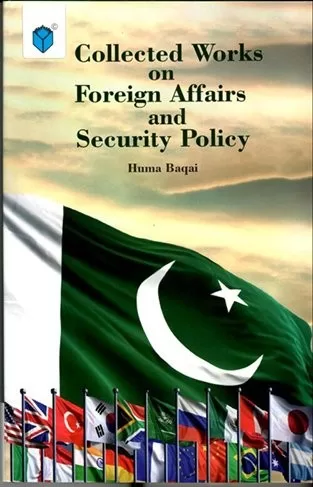The changing dynamics of global power politics and its unavoidable impacts on South Asian regional politics have drawn the attention of international academic communities towards the contesting stances of New Delhi and Islamabad against each other. A plethora of literature has appeared from different parts of the world relating to the changing attributes of the South Asian regional security environment in which the position of Pakistan has generally remained a critical point of leading academic debates. In this scenario, the books written by Pakistani authors gained momentous importance in the world because such books have tried to clear various misconceptions and misperceptions about Pakistan and its position in the decades-long competition with India.
The books containing exceptional features on the ongoing New Delhi-Islamabad hostility and its unprecedented growth under the shadows of great powers have attempted to provide a different outlook of India and Pakistan in South Asian security calculus. The book under review, written by Huma Baqai, attempts to present an analysis of Pakistan’s foreign affairs and security policy choices that Islamabad has made in the last five years. The book is a collection of various short articles written by Huma Baqai from 2018 to 2022 which were published at different local media channels. Baqai is one of the more renowned intellectual personage of the local intellectual community and has a reputable standing in the mainstream media channels of Pakistan. She is presently the Vice Chair of the Karachi Council for Foreign Relations (KCFR) and her intellectual insight has formally been recognized by several advisory and governance bodies. She is the Rector of the Millennium Institute of Technology and Entrepreneurship and has served as the Associate Professor of Social Sciences & Liberal Arts in a Karachi-based academic institute.
The book Collected Work on Foreign Affairs and Security Policy is a collection of forty-six short articles published at different local media platforms (Bol News, Pakistan Observer, and Express Tribune). The compiled articles mainly revolve around the standing of Pakistan in the emerging dynamics of South Asian power politics and its relevance with the politics of great powers and the Muslim world. Additionally, the analysis of Baqai describes the effects of Afghanistan’s political transition as the result of the historical Doha agreement and the withdrawal of the US from Afghanistan on Kabul-Islamabad bilateral relations. The role of India in Afghanistan and New Delhi’s increasing ties with the Central Asian Republics are considered by the author as the major forces determining Pakistan’s relations with Afghanistan. India has been treated throughout the book’s analysis as the gravitational point of Pakistan’s fundamental framework of national security.
The rivalries between major powers such as the United States, China, and Russia have been measured by the author as the influential extra-regional force designing Islamabad’s conventional foreign policy patterns. The complex relationship of all these factors has resulted in specific patterns of Islamabad’s foreign relations with the European and Middle Eastern states whereas the African and Latin American regions remained unaddressed in the author’s analysis in forty-six articles which were selected from an account of author’s eighty articles (p. xv).
For the European continent, the author just emphasized Pakistan-Germany relations on the completion of seventy years of both states’ diplomatic interstate interaction in 2021 (p. 136). Regarding India-Pakistan regional competition and its growing relevance with the great power politics, the role of the United States and China has been focused parallel to discussing the ongoing Beijing-Washington multileveled conflict where the global trading networking plan of China has provided an opportunity to Pakistan against emerging strategic closeness of New Delhi with Washington.

Furthermore, the outbreak of the global health crisis in the form of COVID-19, the launching of the National Security Policy of Pakistan 2022-2026, and the initiation of the Ukraine war are described as the major turning points of Pakistan’s foreign policy and the mainstream security framework of the country. Based on the above-mentioned characteristics of the book, one can safely contend that the author has tried to explore the evolving geopolitical landscape of South Asian regional politics and its dependence on the global power politics, which shape Islamabad’s mainstream policy choices at the regional and global levels. In this way, the analysis in the chronologically ordered five main parts of the book explains the combination of regional and global power shifts influencing the foreign policy and strategic choices of Pakistan. An exclusive focus on the internal security challenges of Pakistan and Islamabad’s increasing focus on non-traditional security threats such as terrorism and religious extremism has increased the significance of the book in the contemporary academic debates of South Asian regional security. In this way, this book is an academic endeavor to provide an analytical survey of Pakistan’s emerging economic and strategic interactions with the outside world, this has made this book an essential read for South Asian policy circles and people interested in updating their perceptions about Pakistan. Moreover, students of Politics, International Relations, Security, and Strategic studies can find this book interesting and an important tool to comprehend Islamabad’s present position in the regional and international power politics.





